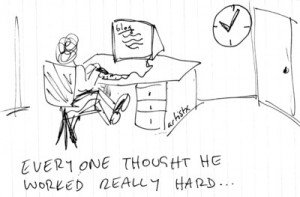Persuasive Picks for the week of 06/28/10
Why We Check In: The Reasons People Use Location-Based Social Networks
Is it for the colorful badges or the chance of a spontaneous meet-up with like-minded people? Marshall Kirkpatrick explores these and other reasons why people are becoming obsessed with “checking in” on location-based social networks like Foursquare and Gowalla.
Social networking sites: 10 mistakes organizations make
Steven Overly from the Washington Post provides these helpful “back-to-basics” tips that highlight many of the things organizations aren’t doing right when it comes to integrating social media with their online marketing strategies.
ROI: Marketing’s Best Frienemy
Helena Bouchez explores Christopher S. Penn’s statement on a Marketer’s accountability of their efforts and how it effects the success or failure of the bottom line.
Why Your Release Might Not Make It In to Google News
Business Wire’s Joseph Miller explores several reasons why the carefully crafted press release you worked so hard on might not show up on Google News, and he provides some helpful tips to ensure that it always does.
Social Networking Affects Brains Like Falling in Love
This Fast Company post explains how Neuroeconomist, Paul Zak has figured out that social networking releases a chemical in our brain that triggers “empathy, generosity, trust and more.” Click the link for the full read, or get the 50 second run-down via the video below.

